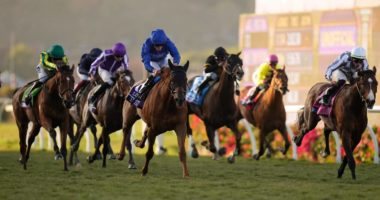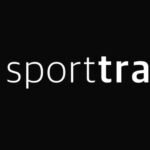
Friday’s fixed-odds horse race in Colorado is edging closer to becoming a reality.
If everything proceeds as intended, May could witness the emergence of that truth.
On Friday, the Colorado Division of Gaming organized a customer rule-making workshop via a Webex video conference.
Several partners raised concerns and requested clarification regarding the proposed Rule 5.4, which pertains to Fixed Odds or Price on Horse and Greyhound Wagering.
The law draft was presented on November 17 at a Colorado Department of Revenue meeting following multiple client meetings.
The plan has been given the green light by the Colorado DOR, and stakeholders were given one final chance to review it on Friday before it is sent to the CLGCC for final approval.
In summary, it appears that there will be upcoming alterations in Colorado’s horse betting industry.
Express animal organizations and the ’s consent is a crucial element.
On Friday’s meeting, a total of five partners raised queries and/or made requests for clarifications.
Dan Hartman, the producer of the Colorado Division of Gaming, addressed each individual, emphasizing the presence of the essential element in the plan repeatedly.
To clarify, any entities interested in providing fixed-odds betting must first obtain contractual consent from the governor-appointed Colorado Racing Commission and the independent Colorado Horse Racing Association, as mandated by the state.
It is highly probable that several Colorado online sportsbooks that currently exist will be among the entities included.
Furthermore, consent would be necessary for Arapahoe Park, a racecourse in close proximity to Aurora, owned by Bally & S.
Arapahoe Park, established in 1984, is the only active racetrack in the Centennial State. Additionally, Bally oversees 10 off-track betting parlors across the state, where individuals can place bets on horse races held internationally.
On Friday, Hartman clarified that consent is only granted to the technician who requests it. Not everyone is eligible to receive consent unless they have acquired the necessary consents or a contract with the horsemen and horse tracks responsible for producing the content in Colorado.
According to Hartman, all suppliers of racing materials will be required to hold licenses. However, those who utilize licensed content providers from outside the condition would not need to acquire licenses themselves.
Horse betting with fixed conflict is uncommon in the US.
If Colorado decides to allow fixed-odds wagering on horse racing, it would become the next US state to do so.
Despite having fixed-odds gaming available, the hybrid model in New Jersey is currently undergoing adjustments and modifications.
In the remaining parts of the state where horse race betting is permitted, a par – mutuel bet is utilized instead of a fixed-odds system.
When using the pari-mutuel bet system, all bets on a specific race are considered to be in the same pool.
A portion is deducted from the lake by the race trail. The remaining funds from that share are ultimately used to settle the bets placed on the winning animals.
However, the challenging aspect for a specific pari-mutuel bettor is that the initial odds they receive for their chosen animal can fluctuate, either increasing or decreasing, before the race begins. These changes in odds are determined by the proportion of bets placed on the horse and the amount of money wagered on it.
What does fixed-odds gaming entail?
Fixed-odds wagering proves otherwise.
At the time of their bet, the given odds determine the guaranteed outcome for a bettor in the race.
To put it differently, the US sports betting program has adopted the identical fixed-odds program.
Nevertheless, it is rare in the realm of thoroughbred horse racing.
Hartman is getting ready to observe and adapt on the go, in a wait-and-watch approach, as Colorado considers the implementation of fixed-odds horse racing.
On Friday, Hartman stated that all driving organizations are currently exploring fixed options. We expect that certain individuals and groups will stay on the sidelines for a period of time to observe the implementation by states and tracks. It is evident that you cannot force people to participate against their will. Similarly, if any individuals have doubts about its functioning, you cannot oblige them to give their approval.
Hopefully, we have crafted a proposal that motivates individuals to give it a go.
Fixed-odds betting on a strong record
It appears that the Rule 5.4 proposal is progressing swiftly.
According to Hartman and the Colorado Division of Gaming board, they will take into account the stakeholder input provided during Friday’s meeting. Once they have finalized and published the cleaned-up version of the fixed-odds rules, they will utilize it for the purpose of & .
According to Hartman’s forecast, the CLGCC is expected to receive the plan during its quarterly meeting scheduled for March. These meetings consistently occur on the third Thursday of every month, indicating that the subsequent fortnight will commence on March 17th.
Once the CLGCC approval is obtained, fixed-odds horse racing will be included in the standard CDOR Events and Wagers catalogue.
Hartman expressed his hope that we will have operating rules implemented by May. The timeline for this depends on the rules approved by the commission.





